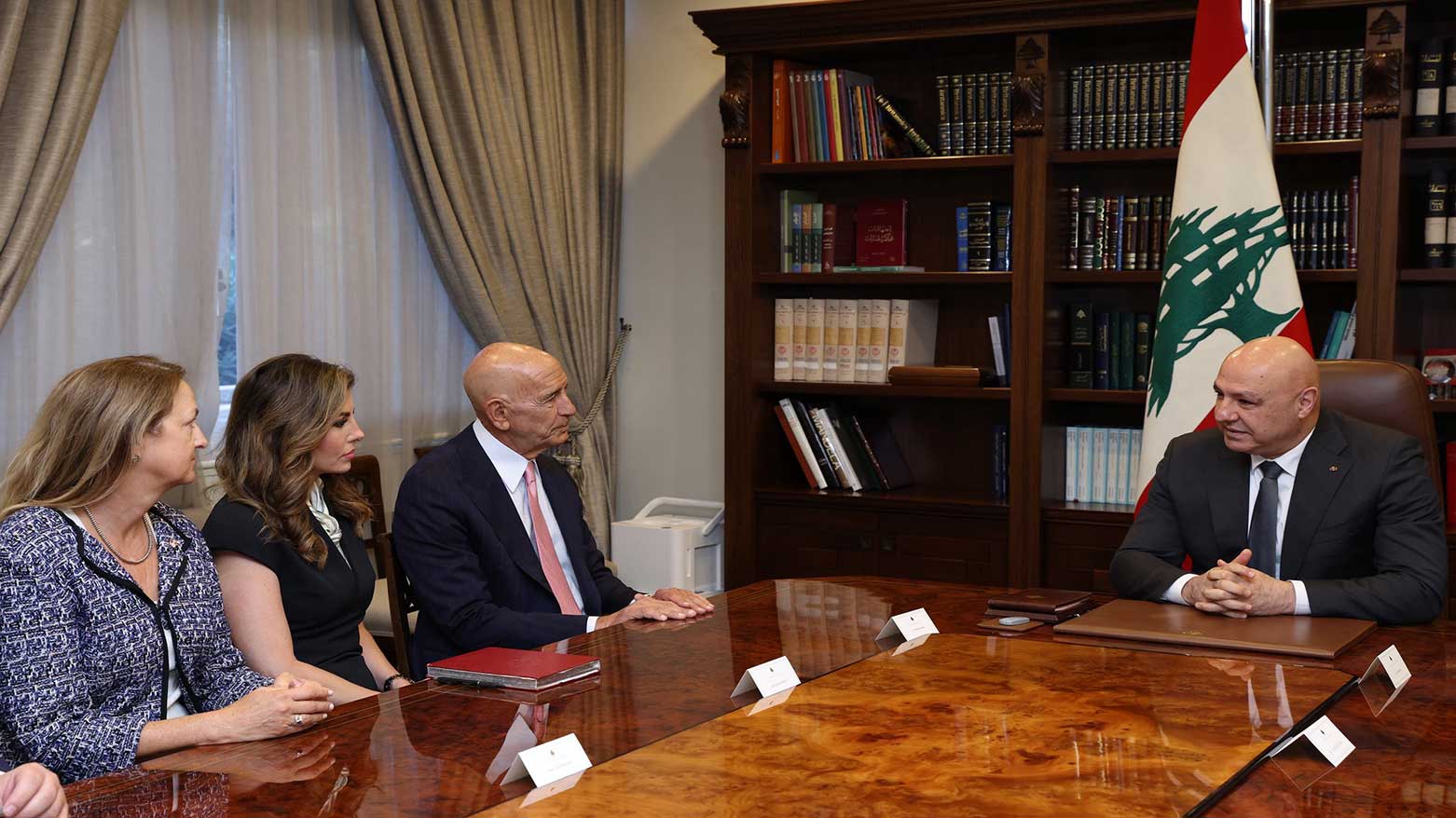US Envoy Urges Israel to Comply with Ceasefire Terms as Lebanon Moves to Disarm Hezbollah
“I think the Lebanese government has done its part. They’ve taken the first step. Now what we need is Israel to comply,” Barrack said after meeting with Lebanese President Joseph Aoun in Beirut.

ERBIL (Kurdistan24) — US envoy Tom Barrack on Monday called on Israel to respect commitments under the November ceasefire agreement that ended its war with Hezbollah, after Lebanon’s government began an unprecedented process to disarm the Iran-backed group, according to AFP.
The truce stipulated that weapons in Lebanon would be restricted to state institutions and that Israel would complete its withdrawal from Lebanese territory. While Beirut has taken initial steps toward implementation, Israeli forces remain stationed at five border locations considered strategically important.
“I think the Lebanese government has done its part. They’ve taken the first step. Now what we need is Israel to comply,” Barrack said after meeting with Lebanese President Joseph Aoun in Beirut. Asked if Israel should fully withdraw, he replied, “That’s exactly the next step.”
The envoy also stressed the need for Lebanon’s economic recovery alongside security reforms. “It means a better life for the people... and at least the beginning of a roadway to a different kind of dialogue” in the region, he noted, adding that Washington was engaged in talks with Israel and expected “progress on all sides” in the coming weeks.
Lebanon’s Disarmament Initiative
Barrack’s visit comes after Lebanon’s cabinet tasked the army with drafting a plan to disarm Hezbollah by year’s end, a rare move since civil war militias were required to disband in 1990. On Aug. 7, the cabinet's ministers also discussed a US-backed proposal outlining 11 objectives, including sustaining the ceasefire with Israel and “the gradual end of the armed presence of all non-governmental entities, including Hezbollah, across Lebanese territory.”
Hezbollah has long been a dominant political and military force in Lebanon, maintaining significant influence across state institutions and receiving backing from Iran. Previous governments have struggled to balance international demands for the group’s disarmament with domestic political realities.
Hezbollah’s Defiant Response
In response to the disarmament push, Hezbollah’s new leader, Naim Qassem, recently issued statements rejecting any effort to dismantle the group’s arsenal, vowing that Hezbollah would not disarm under foreign pressure. He warned that such attempts could destabilize Lebanon further, framing the group’s weapons as essential for national defense. Qassem’s remarks underscore the ongoing challenges Lebanon faces in balancing domestic political consensus, external pressures, and the risk of renewed confrontation with Israel.
Regional and Security Dimensions
While Israeli officials have voiced concerns about Hezbollah’s arsenal and signaled they may act if the group is not disarmed, they have also underscored the importance of long-term security arrangements along the border. Despite the truce, occasional cross-border strikes and air operations have continued, reflecting ongoing tensions.
Washington’s push for Hezbollah’s disarmament is tied to wider efforts to limit Iran’s regional influence. At the same time, they caution that any attempt to weaken Hezbollah’s role must be carefully managed to avoid destabilizing Lebanon’s fragile political system, already burdened by economic collapse and deep governance challenges.
A Fragile Path Forward
Barrack emphasized that managing Hezbollah’s future must remain a Lebanese-led process, highlighting the importance of gradual reforms paired with economic recovery. “The next step is participation on the part of Israel, and we need an economic plan for prosperity, restoration, and renovation,” he said.
For Lebanon, the process represents both an opportunity and a challenge: the chance to strengthen state sovereignty while navigating one of the most sensitive security issues in its modern history.
